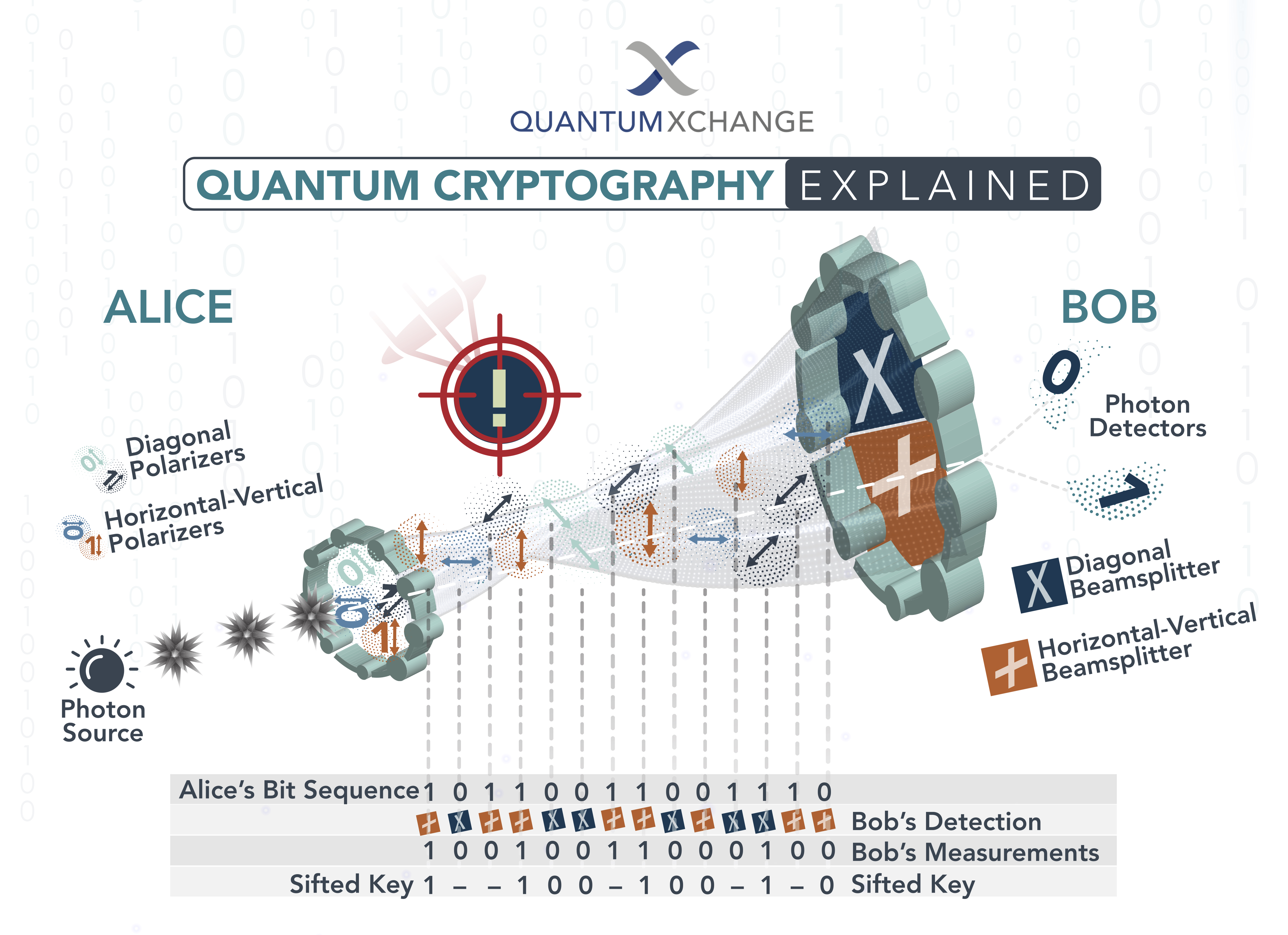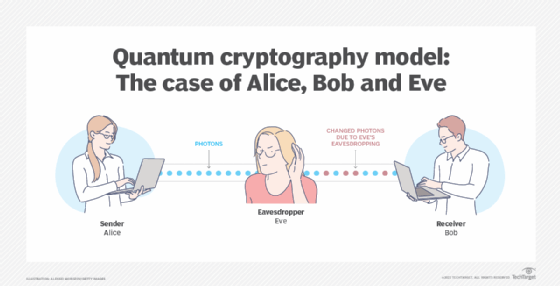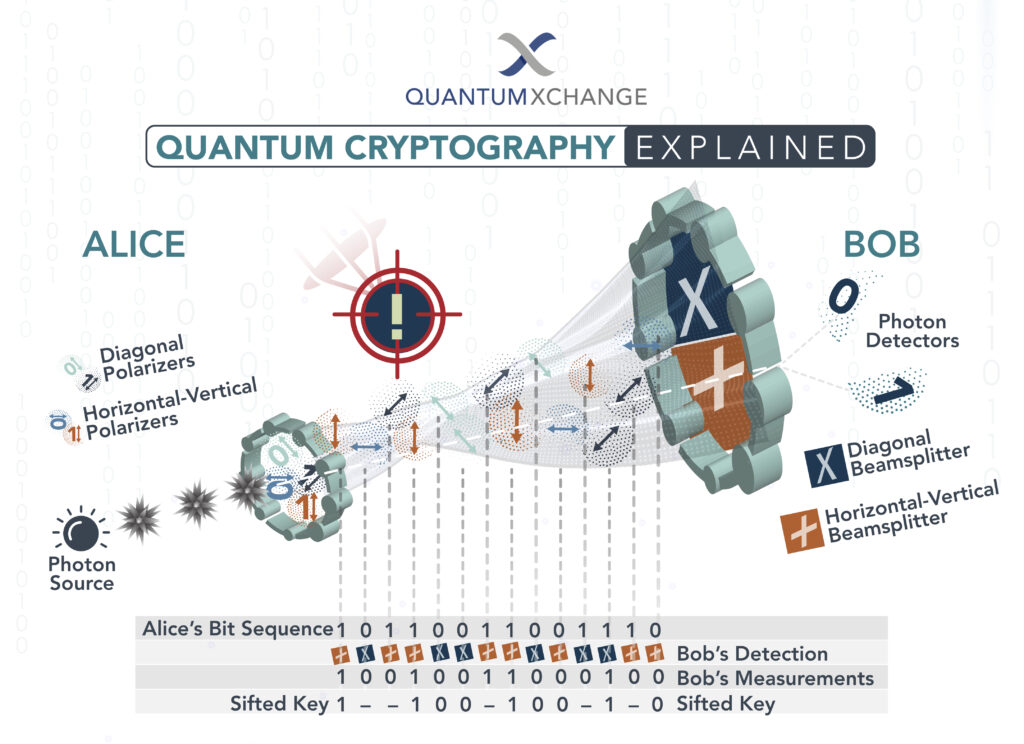Quantum cryptography is a fascinating and complex field that has gained a lot of attention in recent years. At its core, it is a type of cryptography that relies on the principles of quantum mechanics to create secure communication channels. Unlike traditional encryption methods, which can be broken by powerful computers, quantum cryptography is virtually unbreakable. This makes it an essential tool for securing sensitive information in an increasingly digital world.
The importance of quantum cryptography cannot be overstated. In today’s hyper-connected world, we rely on the internet to communicate, conduct business, and store sensitive data. However, traditional encryption methods are increasingly vulnerable to attack. Quantum cryptography offers a new and innovative solution to this problem, enabling us to secure our digital communications and transactions in a way that was once thought impossible. As such, it is a vital tool for protecting our privacy and ensuring the security of our most sensitive information.

What is Quantum Cryptography?
Quantum cryptography is a type of encryption technology that relies on the principles of quantum mechanics to protect data. It is based on the Heisenberg Uncertainty Principle, which states that it is impossible to measure a particle without changing its state. This means that any attempts to intercept or eavesdrop on a quantum cryptography transmission will be immediately detected. This makes quantum cryptography extremely secure and virtually unbreakable.
Quantum cryptography uses a special type of encryption key known as a qubit (quantum bit). A qubit is a unit of information that can be sent through a quantum channel, such as a fiber-optic cable, and can be used to securely encrypt messages. Quantum cryptography is often used by governments and military organizations to protect their most sensitive data.
Why is Quantum Cryptography Important?
Increased Security
The primary benefit of quantum cryptography is that it provides an incredibly secure method of encryption. Traditional encryption methods can be vulnerable to attacks such as brute force, but quantum cryptography is virtually unbreakable. This makes it ideal for protecting sensitive data and communications.
The security of quantum cryptography is based on the Heisenberg Uncertainty Principle, which states that it is impossible to measure a particle without changing its state. This means that any attempts to intercept or eavesdrop on a quantum cryptography transmission will be immediately detected.
Unhackable Communications
With quantum cryptography, there is no way for anyone to intercept or eavesdrop on a communication. This means that data and communications sent via quantum cryptography are guaranteed to remain secure and unhackable. This is especially important for governments and military organizations, as it provides an extra layer of security for their most sensitive data.
Quantum cryptography also provides an additional layer of security for businesses, as it ensures that their communications and data remain secure. This can help to protect companies from data breaches and other cyber attacks, as well as providing peace of mind that their data is safe.
Cost-Effective
Quantum cryptography is also a cost-effective solution. Traditional encryption methods can be expensive to implement, but quantum cryptography is much cheaper. This makes it an attractive option for businesses and organizations that need to protect their data but don’t have the budget for more expensive encryption methods.
Quantum cryptography is also relatively easy to set up and use. This makes it an ideal solution for businesses and organizations that want an easy and secure way to protect their data.
Frequently Asked Questions
Quantum cryptography is a method of communication that uses quantum mechanical phenomena to securely encrypt messages. It is important because it offers much higher levels of security than traditional forms of cryptography, making it ideal for applications where secure communication is essential.
What is quantum cryptography?
Quantum cryptography is a method of communication that uses the laws of quantum mechanics to securely encrypt messages. It is based on the idea that if a message is transmitted over a quantum channel, the message remains secure even if the channel is intercepted by an eavesdropper. This is because any attempt to intercept the message will cause the quantum state of the message to change, making it impossible to read or decode the message.
What are the advantages of using quantum cryptography?
The main advantage of using quantum cryptography is its high level of security. Traditional forms of cryptography are vulnerable to attack by sophisticated hackers, but quantum cryptography offers an unprecedented level of security. This is because any attempt to intercept a message sent over a quantum channel will cause the quantum state of the message to change, making it impossible to read or decode the message. Additionally, quantum cryptography does not require the use of complicated algorithms or keys, meaning it is much easier and more efficient to use.
Who uses quantum cryptography?
Quantum cryptography is used by a variety of organizations, including government agencies, financial institutions, and telecommunications companies. These organizations rely on quantum cryptography to ensure that their communications are secure and that any attempts to intercept their messages will fail. Additionally, quantum cryptography is becoming increasingly common in consumer applications, such as online banking, ecommerce, and secure messaging.
How is quantum cryptography different from traditional cryptography?
Quantum cryptography is different from traditional cryptography in two key ways. First, quantum cryptography uses the laws of quantum mechanics to encrypt messages, meaning it offers a much higher level of security than traditional cryptography. Second, quantum cryptography does not require the use of complicated algorithms or keys, meaning it is much easier and more efficient to use.
What are the potential applications of quantum cryptography?
The potential applications of quantum cryptography are virtually limitless. Quantum cryptography can be used in a variety of applications, including government and military communications, financial transactions, secure messaging, and online banking. Additionally, quantum cryptography is becoming increasingly important for the secure storage and transfer of sensitive data. Finally, quantum cryptography can also be used to create secure networks and communications channels that are resistant to attack.

In conclusion, quantum cryptography is an essential area of research that has a significant impact on the security of our modern world. The ability of quantum technology to detect any attempt to intercept data during transmission is a game changer in the world of secure communication. The development of quantum cryptography has the potential to revolutionize the way we communicate and conduct business, offering a level of security that was previously impossible to achieve.
As technology continues to advance, the need for secure communication will only increase. With the advent of quantum cryptography, we can be assured that our most sensitive information will be protected from prying eyes. It is clear that the importance of quantum cryptography cannot be overstated, and the continued research and development in this field will undoubtedly lead to even more advanced solutions for our future security needs.

